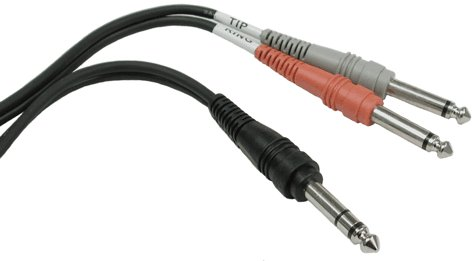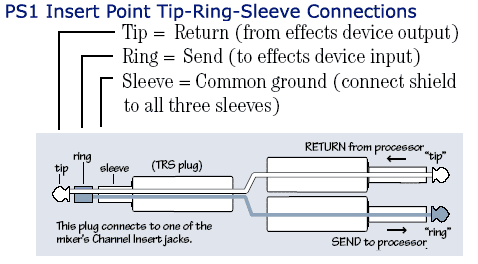Effects/Lexicon/MX200
Contents
Connections at the PS1 Power Stand (Classic) / Model I
Serial Effects - Excerpt from the PS1 Power Stand (Classic) / Model I Manual

Insert Cable
Photo
Typical Insert Cable Hosa STP204
Insert Cable Connections to the PS1 Power Stand (Classic) / Model I
Lexicon MX200 Specific Notes
Links
With the Lexicon MX200 you can use two channels when you operate independently. These illustrations are based on using both channels to support two PS1 Power Stand (Classic) / Model Is.
Connections at the Lexicon MX200
Routing with Two PS1 Power Stand (Classic) / Model Is
Front Panel
Documentation (Page 12 of the manual)
Controlling the Wet/Dry Mix
Using the terminology from page 7 of the Lexicon MX200 Users Manual you are making a Serial connection. This mean that you will control the wet/dry mix using the mix controls (11 and 12) on the front panel. The Lexicon manual suggests that you may want to use a parallel connection for reverb, (and you can do this with the PS1 Power Stand (Classic) / Model I you will have to use Channel 3 or 4 for the return signal. There is not great advantage to this as you will still have to control the amount of effect (reverb) being sent to the {{PS1} from the effects unit. It is probably simpler to use the serial method and the mix controls on the Lexicon unit to manage how much reverb is applied to the signal.
There is more discussion in the Original post in the Bose® Musicians Community Message Boards

